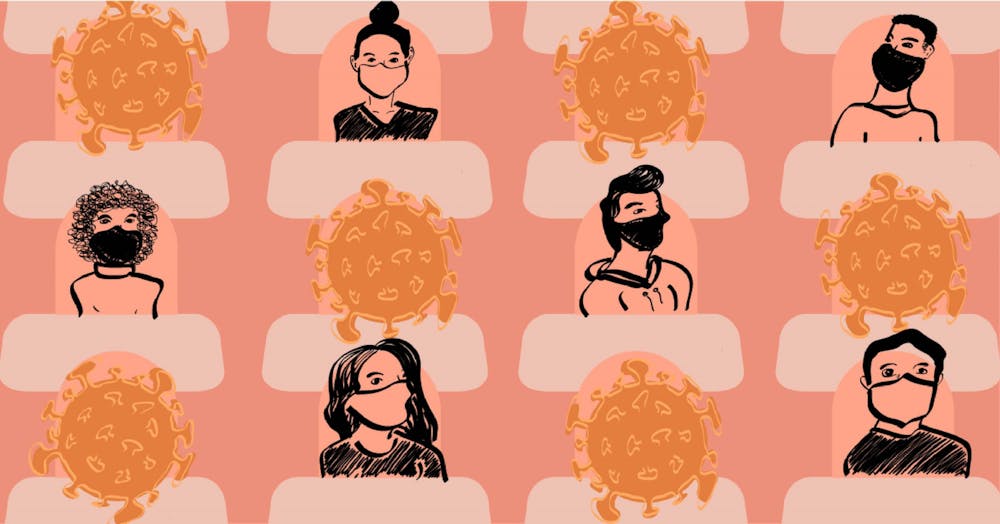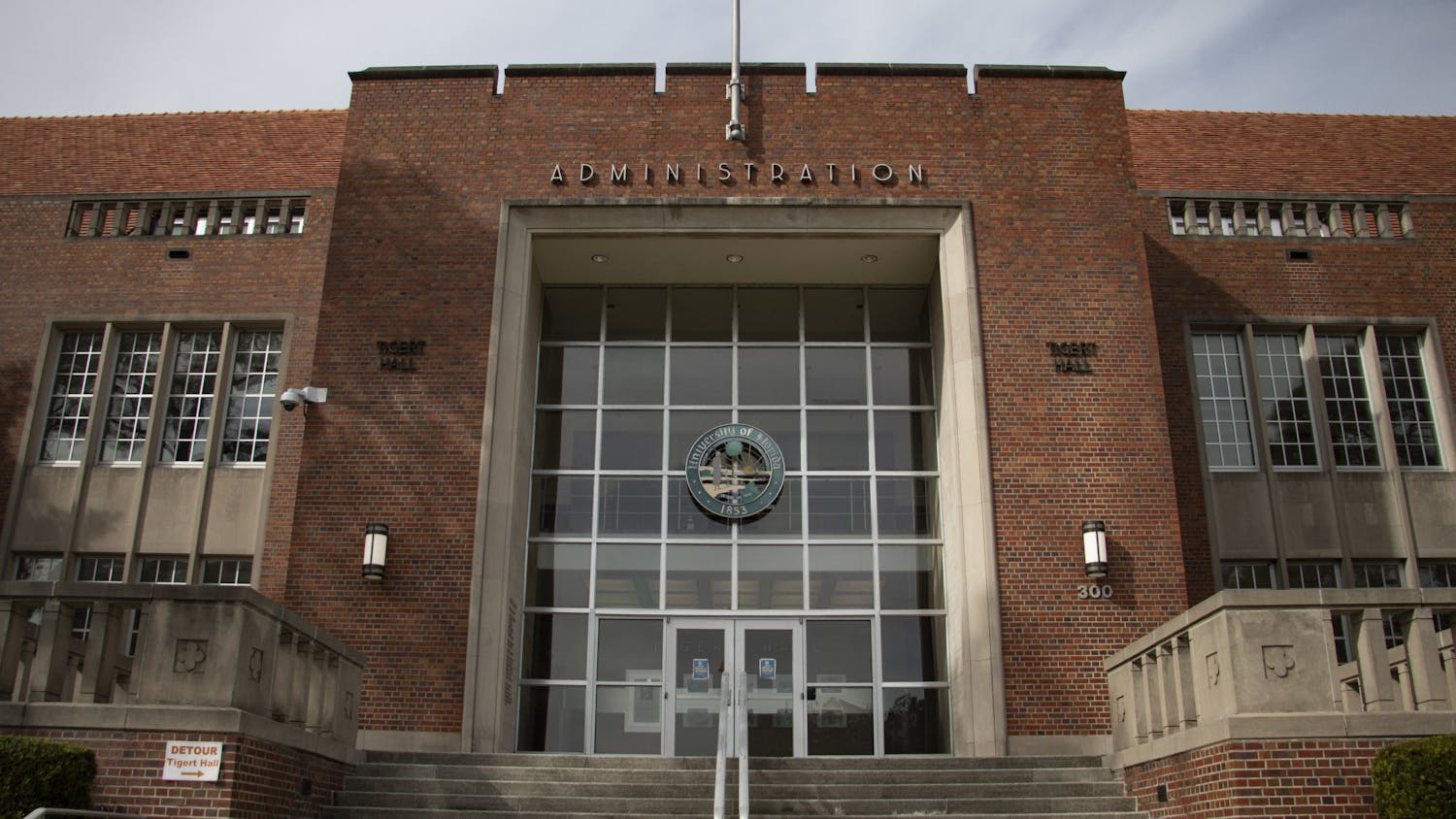Colleges and universities across the country created online dashboards to display COVID-19 numbers, but since the onset of the pandemic, Santa Fe College only reports the number of cases in weekly staff emails.
The college developed its current system of reporting case numbers based on what its employees wanted to know and how frequently, Lela Frye, the college’s director of human resources, said. Instead of developing a publicly accessible dashboard, Santa Fe faculty and staff receive weekly email reports from Frye with the college’s COVID-19 numbers.
“I don’t know that there’s a reason why we don’t (post numbers),” Frye said. “We don’t have a reason to do it, if that makes sense.”
UF created a COVID-19 dashboard in August to publicly display the number of cases. UF officials continuously pointed to the numbers as they made reopening plans for the Spring, despite topping charts with some of the highest reported cases among the country’s universities in November.
Frye said the college never created a COVID-19 dashboard, and she’s unsure whether students ask about the data. But as a public record, Frye said if a student asks for the data, they would receive it.
Students who are interested in seeing Santa Fe’s COVID-19 data can contact Student Affairs by email, spokesperson Jay Anderson wrote in an email. The college will provide interested individuals with the total number of confirmed positive student cases, as well as data on students who reported feeling ill, he wrote.
The college relies on self-reporting to collect its data, Frye said. When someone reports symptoms of COVID-19 or an exposure to someone who tested positive, she said the college opens a file. From there, Santa Fe’s contact tracers reach out to the employee or student listed in the report, which make up the college’s processed cases number, she said.
The reports include data from Monday after business hours through the following Monday, Frye said. The college began documenting student cases March 8, 2020, and employee numbers the following day, she said.
Santa Fe treats symptomatic employees and students as presumptive positives, meaning individuals are still required to isolate even if they test negative, Frye said. The college does not offer testing.
“We never adopted a test-based philosophy,” Frye said. “We adopt the much more conservative symptoms-based method.”
In Fall 2020, 13,996 students enrolled at Santa Fe. The college required faculty, staff and students to complete COVID-19 training modules before returning to campus for the Fall semester. Masks and physical distancing are also required to protect those on campus. This Spring, courses were offered in four different formats: in person, online asynchronously, as traditional hybrids and as virtualized hybrids.
If students feel ill or concerned about having the virus, they are told to contact their county health department, Anderson wrote in an email. Students can schedule a COVID-19 test with the assistance of the Alachua County Health Department and Bradford County Health Department, Anderson wrote.
Students fill out a form if they have COVID-19 or have been exposed and inform their instructors their classwork may be affected through Canvas, according to the college’s website. Faculty are encouraged to report students to Student Affairs who were sick, Frye said. Faculty and staff should contact Human Resources by email if they have been exposed or had COVID-19, according to the website.
Employees or students who do not report to their respective department are handled on a case-by-case basis, Anderson wrote in an email.
When Santa Fe contact tracers complete a student report, they notify all faculty listed on the student’s schedule and provide the date the individual can return to campus, Frye said. Faculty are expected to keep the information confidential and receive a follow-up email when the student is officially cleared for campus, she said.
Employees and students can’t return to campus until a contact tracer clears them through a follow-up consultation, Frye said.
Faculty, staff and students who don’t stay away from campus, report their status or comply with COVID-19 protocols are “subject to disciplinary action or other appropriate adverse response by the College,” according to its website.
Because the college did not mandate testing, faculty, staff and students can choose whether to report a positive test result, Frye said. The number of positive cases within the college could be higher than the number Santa Fe was able to report as a result, she said.
In terms of asymptomatic COVID-19 cases, students and employees who feel well and have no known exposure to the virus are allowed on Santa Fe property, Anderson wrote in an email. The campus enforces mask wearing and social distancing to protect against asymptomatic spread, he wrote.
Through a timeline created by the contact tracing teams, Santa Fe determines if an individual has been on campus while positive and whether that resulted in further community spread, which means causing any additional exposures, Frye said.
These measures have been successful for the Santa Fe community, Anderson wrote in an email. In the last year, only eight people tested positive for COVID-19 as a result of what the college’s contact tracers may have deemed community spread.
“That’s a huge success story, and it tells us that the protocols we have put in place have been effective at mitigating the risk,” Anderson wrote in an email.
Tony Rodriguez, a 23-year-old Santa Fe student earning his associate degree in health sciences, is currently taking his courses online because of COVID-19. Rodriguez preferred to learn virtually this semester because he lives with family who are at risk due to their ages and health conditions, he said. He saw the effects of the virus personally when his mother, who is a nurse, became infected, he said.
“It just makes me more cautious when I make decisions of interacting in public with people or going back to campus and stuff,” Rodriguez said.
Rodriguez said he started at Miami Dade College, but he transferred to Santa Fe because of the way it handled COVID-19 and its prioritization of the community’s safety and health. He plans to apply to get his Associate of Science in Nursing at Santa Fe and later get his Bachelor of Science in Nursing at UF.
He said Santa Fe has communicated well with its students about COVID-19 updates. Rodriguez personally doesn’t ask about Santa Fe’s COVID-19 numbers because he doesn’t want to submerge himself in the negativity.
“To me, it’s just psychologically too much, so I try not asking,” Rodriguez said.
Although Rodriguez feels this way, he said students have different preferences and should be able to access the numbers publicly if they want.
Mary Grace Eaton, an 18-year-old Santa Fe first-year working toward an animal sciences associate degree, had first-hand experience with the college’s COVID-19 protocols.
When she became ill during the Fall semester, she missed class and reported her illness to her professor with a doctor’s note, she said. However, because her doctor verified she was not sick with COVID-19, Eaton did not have to quarantine, she said.
Soon after, her professor reported her case to Santa Fe, and Eaton received a call from Student Affairs, she said. She didn’t know her professor had told the college about her illness until she got the phone call, she wrote in a text message.
If Eaton had been exposed or had the virus, she said she would have had to quarantine for 10 days — even if she received a negative result.
“They really made sure that you did not have any contact with campus,” Eaton said.
Eaton and her friends have not heard anything about the college’s case numbers, she said, and she would like to see a COVID-19 dashboard specific to Santa Fe. Eaton said she thought Santa Fe would email or text her about the numbers.
Eaton works for a daycare and chose online classes this semester to prevent exposing the children to COVID-19.
“I know, for me at least, it’s really difficult doing online, and I know if I saw the numbers that would be helpful if I were able to do in person,” Eaton said.
Contact Juliana Ferrie at jferrie@alligator.org. Follow her on Twitter @juliana_f616.

Juliana Ferrie is a second-year UF journalism student. She is excited to be working for The Alligator as the Santa Fe Beat reporter. In her free time, you can find her reading or listening to music.






